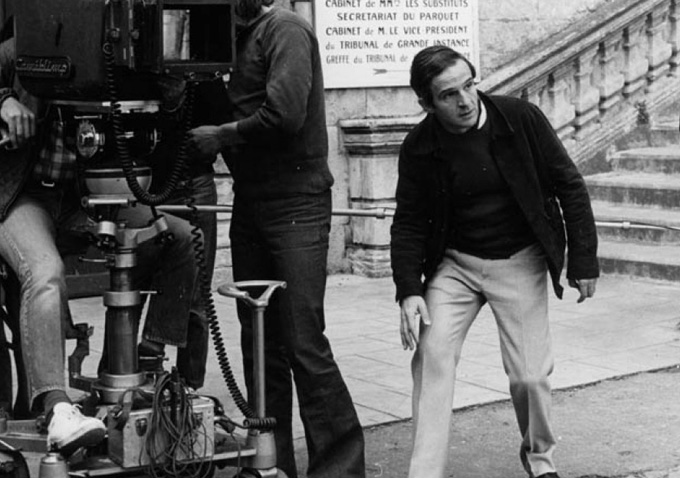 This week sees Francois Truffaut‘s seminal love-triangle “Jules Et Jim,” one of the French filmmaker’s best-loved and most influential works, get an upgrade to Blu-Ray on the The Criterion Collection. And with New York City’s Film Forum staging a significant retrospective of his work beginning in March, and “The 400 Blows” also being reissued on Criterion in April, it feels like the perfect opportunity to do something we’ve been dying to do for ages: put the spotlight on the filmmaker’s work.
This week sees Francois Truffaut‘s seminal love-triangle “Jules Et Jim,” one of the French filmmaker’s best-loved and most influential works, get an upgrade to Blu-Ray on the The Criterion Collection. And with New York City’s Film Forum staging a significant retrospective of his work beginning in March, and “The 400 Blows” also being reissued on Criterion in April, it feels like the perfect opportunity to do something we’ve been dying to do for ages: put the spotlight on the filmmaker’s work.
Truffaut went from runaway schoolboy to bad-boy Cahiers du cinema critic to wildly acclaimed filmmaker before the age of 27, and sadly, passed away of a brain tumor aged only 52, and the result is that his career can sometimes seem like a brief, if brilliant one, especially in contrast to that of friend and colleague Jean Luc-Godard, who’s still working today. But Truffaut packed a lot into his quarter-century of work, dancing between autobiography (his Antoine Doinel series), crime drama, period fare, sly comedy, and sometimes all of the above.
He’s one of our favorite filmmakers, and has one of the more fascinating resumes out there, so as “Jules Et Jim” makes the 1080p upgrade, we’ve picked out ten of our very favorite Truffaut pictures (limiting ourselves to those he directed, rather than wrote, like “Breathless,” or just appeared in, like “Close Encounters Of The Third Kind“). Most people have the same favorite top few Truffaut films, but beyond that, it gets a little more subjective — you can take our choices to task, and offer up your own, in the comments section below.
 “The 400 Blows” (1959)
“The 400 Blows” (1959)
“The only way to criticize a movie as to make another movie,” Truffaut’s great friend, rival and colleague Jean-Luc Godard once said. And to be fair to them, the two put their money where their mouths were: after upending the critical establishment with his work at Cahiers du cinema across the 1950s, Truffaut moved into shorts with 1955’s “Une Visite,” and after being inspired by Orson Welles‘ “Touch Of Evil” in 1958, made his feature debut with the autobiographical “The 400 Blows.” And while the knives must have been out for it when it premiered at Cannes, Truffaut had the best possible response: he’d made a glorious movie, one that turned the director from firebrand critic to one of cinema’s brightest hopes. Drawing on his own delinquent adolescence, the film is the first of five Truffaut made to focus on his surrogate Antoine Doinel (played by Jean-Pierre Leaud, who met the director through a casting call in a newspaper, then aged only 14), who here, faces the worst trouble of his young life so far, as difficulties at home and school lead to him attempting to steal a typewriter from his stepfather, which leads to him being arrested and sent to a center for troubled young boys. A sort of Gallic answer to the Angry Young Man narrative that was emerging at almost exactly the same time across the Channel and the Atlantic with “Look Back In Anger” and “Rebel Without A Cause,” it’s a deeply moving and humane picture that captures about as accurately as anything that’s ever been made the swirling mass of hormones that you suffer from when you’re fourteen and hate your parents, your teachers, and well, pretty much everyone, thanks principally to its laser-tight focus on Antoine. And by Antoine, that means Truffaut: this is cinema in the first-person, to all intents and purposes, with the filmmaker demonstrating in practice what he’d been talking about for so long in terms of the auteur theory. With distance, it’s easy to forget what a technical firecracker it must have been — even on a limited budget, the black-and-white Cinemascope looks thoroughly gorgeous, and his command of where his camera looks, and where he cuts, is immensely confident. The film, which won Truffaut Best Director at Cannes (a festival from which he was banned as a critic the year before), is dedicated to Andre Bazin, the great critic who’d passed just as the director was preparing to make the film, and who’d been both a mentor and something of a saviour to him. We all have a reason to be thankful to Bazin, then.






Can\’t believe you left out THE WOMAN NEXT DOOR
I know it's far from his best, but I really love his "Fahrenheit 451". It is a really interesting adaptation with a great visual style.
Uhm… Bed and Board? One of his absolute best.
It's hard to go wrong with any of his films, though I'm not as big on "Two English Girls" as most â I find it a bit too arch for its own good, in a way that kind of muffles the passion that should be there. Big fan of his first three/"Day for Night"/"Stolen Kisses"/"The Wild Child", and I do like "The Green Room" a lot even though I think it needs a more expressive actor than Truffaut and "Confidentially Yours" even if it's a bit of a trifle.
As for others: glad you mentioned "Mississippi Mermaid", "The Last Metro", and "The Story of Adele H" in the honorable mentions, but I think "The Woman Next Door" is an absurdly underrated Hitchcock homage that's more deeply felt (and, indeed, more personal) than "The Bride Wore Black".